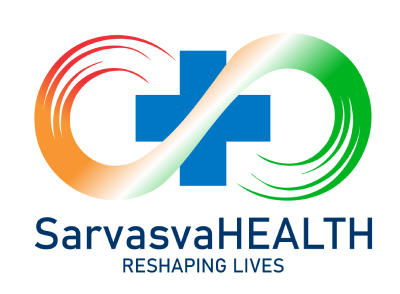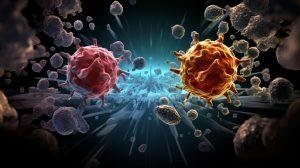Facing a cancer diagnosis is an emotional rollercoaster, and one of the common treatment options that patients encounter is chemotherapy. Unfortunately, this life-saving medical intervention is often surrounded by a cloud of myths and misconceptions that can add to the anxiety already experienced by patients and their families. In this comprehensive guide, we will delve into the world of chemotherapy myths, separating fact from fiction to provide a clearer understanding of this crucial aspect of cancer treatment.
Chemotherapy Myth #1: It is a one-size-fits-all treatment.
Fact: Chemotherapy is highly individualized.
One of the most prevalent myths about chemotherapy is that it’s a standardized treatment for all cancer patients. In reality, chemotherapy is a highly personalized approach. Oncologists carefully consider the type of cancer, its stage, the patient’s overall health, and other factors to tailor a treatment plan that maximizes effectiveness while minimizing side effects.
Understanding the different types of chemotherapy drugs and their mechanisms is essential. Chemotherapy may be administered intravenously, orally, or topically, depending on the specific needs of the patient and the characteristics of the cancer.
Chemotherapy Myth #2: It is always debilitating, causing severe side effects.
Fact: Side effects vary, and many can be managed.
While it’s true that chemotherapy can cause side effects, the severity and type of side effects vary among individuals. Common side effects include fatigue, nausea, hair loss, and changes in blood cell counts. However, advancements in supportive care have significantly improved the management of these side effects.
Medical professionals work closely with patients to develop strategies to alleviate symptoms and enhance their quality of life during treatment. From anti-nausea medications to innovative approaches like scalp cooling to reduce hair loss, healthcare providers are dedicated to minimizing the impact of side effects.
Chemotherapy Myth #3: It is only undergone in the advanced stages of cancer.
Fact: Chemotherapy can be part of treatment at various stages.
Chemotherapy is not exclusively reserved for advanced stages of cancer. It can be employed in different scenarios, including:
Neoadjuvant therapy: Administered before surgery or radiation to shrink tumors.
Adjuvant therapy: Given after surgery or radiation to eliminate remaining cancer cells.
Palliative care: To alleviate symptoms and improve the quality of life in advanced stages.
Understanding the role of chemotherapy in each stage of cancer treatment allows patients to make informed decisions about their care.
Chemotherapy Myth #4: Natural remedies can replace chemotherapy.
Fact: Complementary therapies should be discussed with healthcare providers.
The idea that natural remedies alone can cure cancer is a dangerous misconception. While some complementary therapies may provide support and alleviate side effects, they are not substitutes for evidence-based medical treatments like chemotherapy.
Patients should always consult their healthcare team before incorporating any complementary therapies into their treatment plan. It’s essential to ensure these practices do not interfere with the effectiveness of chemotherapy or compromise patient safety.
Chemotherapy Myth #5: It is a death sentence.
Fact: Many cancer patients successfully undergo chemotherapy and achieve remission.
The association of chemotherapy with a death sentence is a grim and unfounded myth. Countless individuals have successfully undergone chemotherapy, achieving remission and even cure. Advances in medical research and technology continue to improve the outcomes of cancer treatment, offering hope to those facing a diagnosis.
Chemotherapy Myth #6: It kills only cancer cells.
Fact: Chemotherapy can affect some healthy cells.
While chemotherapy is designed to target rapidly dividing cancer cells, it can also affect healthy cells that divide rapidly, such as those in the bone marrow, digestive tract, and hair follicles. This is why side effects like hair loss, gastrointestinal issues, and changes in blood cell counts are common. However, the goal of chemotherapy is to strike a balance between eliminating cancer cells and minimizing harm to healthy tissues. Medical professionals carefully consider dosage and treatment schedules to manage this delicate balance and reduce the impact on healthy cells.
Chemotherapy Myth #7: It is a standalone treatment for all cancers.
Fact: Treatment plans often involve a combination of therapies.
Chemotherapy is a crucial component of cancer treatment, but it is rarely the sole approach. Depending on the type and stage of cancer, treatment plans may include surgery, radiation therapy, immunotherapy, hormone therapy, or targeted therapies in addition to chemotherapy. The combination of these modalities, known as multimodal or combination therapy, is tailored to each patient’s specific situation to maximize the chances of success. Understanding the collaborative nature of cancer treatment can dispel the myth that chemotherapy alone is the answer for every cancer case.
Conclusion
Chemotherapy is a powerful tool in the fight against cancer, and understanding the realities of this treatment can empower patients to make informed decisions about their care. Dispelling the myths surrounding chemotherapy is crucial for fostering a more supportive and accurate narrative, ultimately helping patients navigate the challenging journey toward recovery. Through education, open communication with healthcare providers, and a holistic approach to cancer care, we can collectively work towards demystifying chemotherapy and improving the overall experience for those facing this formidable challenge. Sarvasva Health is a leading chain of head and neck cancer treatment centres in Mumbai, and we aim to ease the process of Chemotherapy for you.



